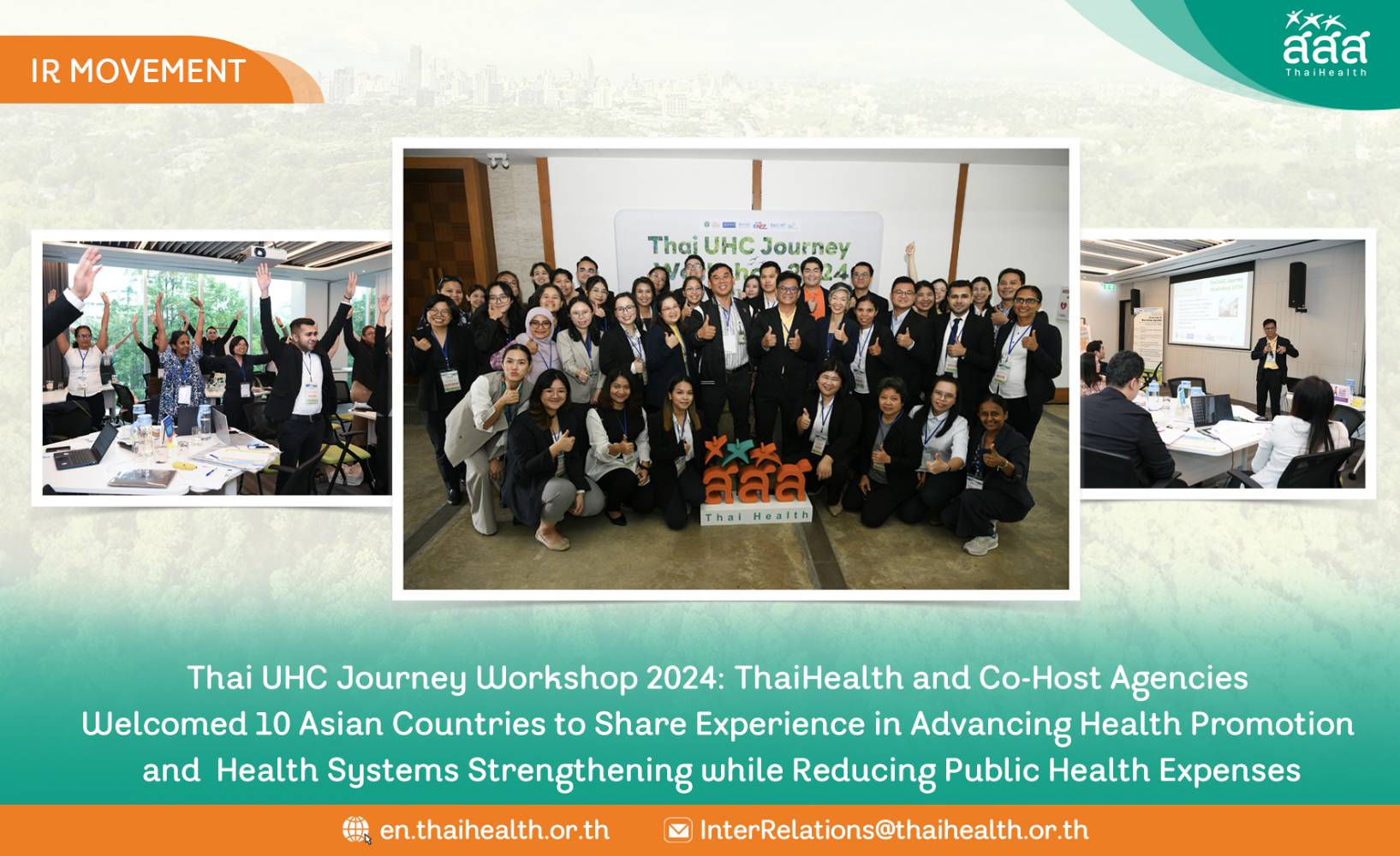During November 4 – 8, 2024, the Thai Health Promotion Foundation (ThaiHealth) along
with several key health organizations in Thailand, including the Ministry of Public Health (MOPH),
the National Health Security Office (NHSO), the National Health Commission Office (NHCO), the
Enhancing Leadership on Global Health-Thailand Program under the WHO Country Cooperation
Strategy (CCS-EnLIGHT), the International Health Policy Foundation (IHPF) in collaboration with
the ThaiHealth Academy (THA) hosted a regional workshop Thai UHC Journey Workshop 2024
under the theme “Health Promotion: A Transformative Pathway towards Sustainable Health and
Well-being” in Bangkok Thailand to share and exchange knowledge and experiences in health
promotion with other Asian countries. The event welcomed 25 participants, including government
officials, health policy and research experts, and representatives from civil society organizations
across ten countries in Asia, including Malaysia, Bangladesh, Cambodia, Indonesia,
Myanmar, the Philippines, Singapore, Sri Lanka, Timor-Leste, and Thailand. Representatives from
international organizations, such as the Asian Development Bank, Vital Strategies, and Regional
Laboratory on Urban Governance for Health and Well-being, also attended. The workshop aimed
to highlight the significance of health promotion in fostering sustainable changes in health
behaviors and well-being. Dr. Prakasit Kayasith, Assistant CEO of ThaiHealth, noted that this
was the fourth edition of the annually-held Thai UHC Journey Workshop, designed to showcase
and share Thailand’s experiences and achievements in health promotion, which contributed to
the attainment of Universal Health Coverage (UHC) and a robust and efficient holistic health
system. Additionally, the event focused on building a network for international cooperation,
underlining that health promotion involves not only individual healthcare but also the development
of public policies and the creation of enabling environments at all levels – individual, community,
social, and structural – in line with the 1986 Ottawa Charter for Health Promotion.


